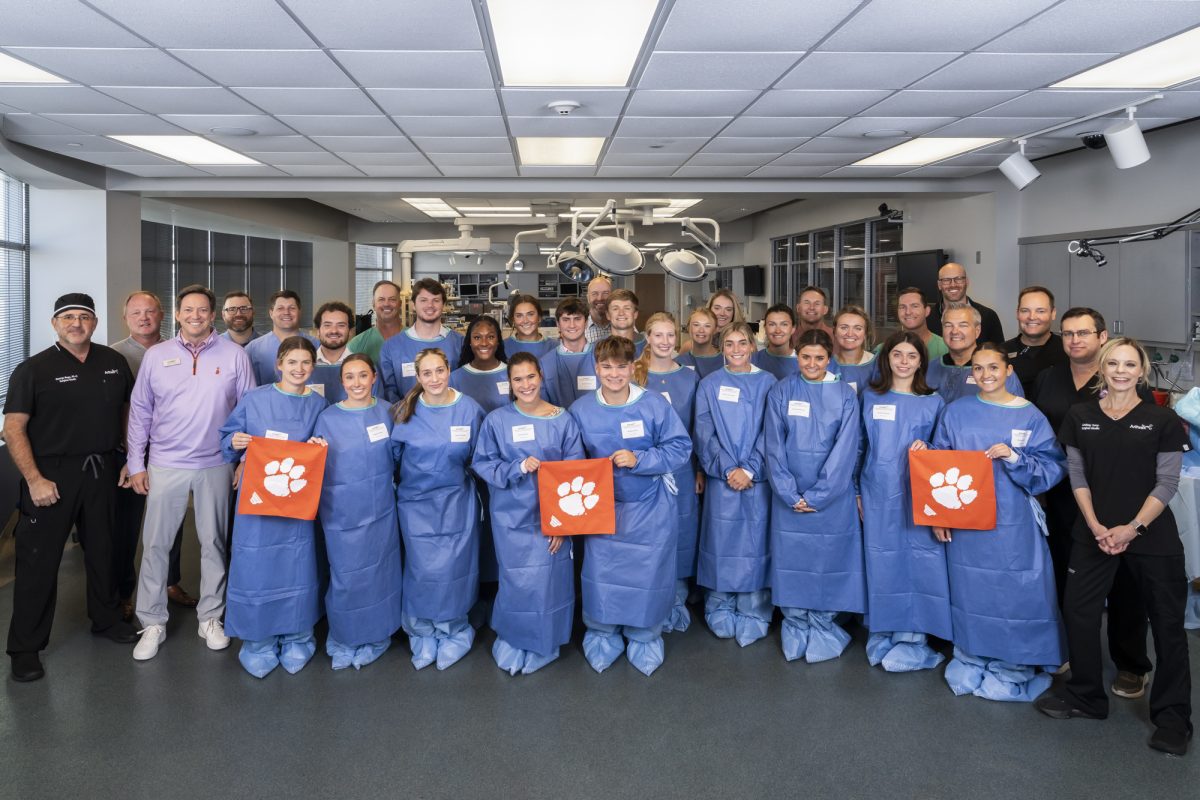Vegetarian and gluten free options are nothing new to Clemson University’s dining halls, but the recent addition of halal foods is.
“Halal is the Arabic word for ‘permissible,’ so halal food is any food that is permissible for Muslims to eat,” Muhammed Kose, former president of Clemson University’s Muslim Student Association (MSA), said.
The majority of foods available at supermarkets and restaurants are considered permissible, but some foods, such as meat, have “very specific guidelines as far as what is and isn’t halal,” Kose said.
To begin, the animal must be slaughtered in a specific way known as Zibah or Zabihah. This includes requirements such as making sure the animal is healthy, that it is killed with a single swipe to the neck and that it must be killed by a person of the book.
Also, Zibah forbids the eating of pork, in accordance with the Quran. Many Muslim students at Clemson have limited access to halal meats, which makes eating options on campus quite limited.
Kose got the idea to implement halal food in Clemson’s dining halls from his brother’s university, Rensselaer Polytechnic Institute (RPI) in Troy, New York. He explained that the MSA at RPI brought about the addition of halal food to the on-campus restaurants, but that he “decided to move one step further and try to get halal meat into the dining halls.”
Kose said at first this proved to be a difficult task, as he was unsure how he could turn his idea into a reality.
Recognizing and catering to the special dietary needs of a diverse student body is a goal Clemson Dining continually works towards. Kose said he worked with “the employees at Core Dining Hall and helped to set the guidelines for what procedures and other things that were needed to bring halal meat to Clemson.”
“[After getting in] touch with the right people, I was able to get the ball rolling,” Kose said.
Adam Summer, the Director of Operations at Clemson for Aramark, said, “recent feedback from the Muslim Student Association gave us insight into how we could better meet the dietary needs of the campus population, which lead to the addition of halal foods on the menu.”
“Halal products are currently being offered every Tuesday and Friday at lunch in the Fresh Food Company located in Core Campus,” Summer said. He added that a variety of foods are being served, some of which include “roasted lamb, salmon and gyros.”
As of right now, halal food options will only be available until the end of the fall semester. After that, feedback from students will be evaluated to “most appropriately adjust services to meet the needs of our guests,” Summer said.
For current students, the addition of halal food at Core Campus has allowed for them to choose from many more options. Kose was struck by the future implications and importance of this change when he “thought to [himself], ‘This is awesome because it’ll give Muslim students one more reason to go to Clemson.’”







